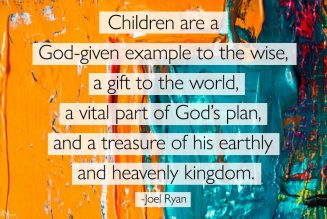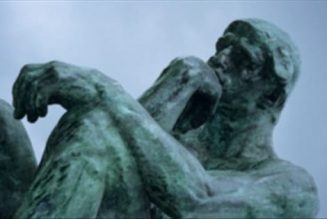
God made us in His image (Genesis 1:27), which means He imprinted upon us several of His attributes. This sets us apart from the beasts of the field and the birds of the air (Genesis 1:28).
Yet, God did not endow humans with all of His characteristics, hence why man stands at a lower rank than even the angels (Hebrews 2:7).
In our search to see where God left His fingerprints on us, we’ll discover what He shared with mankind (communicable attributes) and what qualities belong to Him and Him alone (incommunicable attributes).
What are the communicable attributes that God shares with us?
Before we dive into this, we do have to understand that if we share attributes with God, we do not share the full extent of them.
For instance, both God and humans have an innate sense of justice (Proverbs 21:15). Although we all share in this sense of wrong and right, due to our sin nature, we can have this to a lesser extent or a polluted version thereof. This applies to all the communicable attributes.
In addition to a sense of justice, God and mankind have the ability to love. For this reason, Jesus told us the two greatest commands: love God and love our neighbor (Matthew 22:37-39). Of course we cannot exercise the amount of love God has for us. The Greek even has a word for it: agape, unconditional, selfless love. Yet we can phileo, love others in a deep friendship sense.
Other communicable attributes include:
Knowledge: God gifted us with our ability to think and know about Him. Without such knowledge, we cannot come to know about God’s goodness and His saving work.
Reason: God has given us the skills to reason and think logically. Apologists implement such reason to bolster the veracity of the Gospel through arguments and proofs such as the Kalam Cosmological Argument.
Truth: We have an innate sense of truth. We want to know what is and isn’t factual about the fabric of our reality.
What are the incommunicable attributes that God does not share with us?
Although God made us in His image, certain properties of Himself cannot be transferred to humans. The following characteristics are not communicable:
Holiness: Plenty of verses in the Bible pay tribute to God’s holiness and perfection (Psalm 22:3, Isaiah 43:15, Exodus 15:11). No one can find fault within Him. Jesus resisted the Devil’s temptations and temptations of every kind.
All Powerful, All Present, All Knowing: God contains all the power in the Universe. He knows all things, and having created time itself, has power over that as well. Theologians have wrestled with God’s omnipotence, omniscience, and omnipresence because each of these three have brought about millennia of philosophical and dogmatic debate. Humans struggle to grasp these concepts because we, as finite beings, cannot imagine the complexity of such things.
Eternal: God exists outside of time and always has been. Hence, why Jesus says, “Before Abraham was born, I am” (John 8:58).
Immaterial: As humans with a physical body, we struggle to grasp the fact that God is Spirit. Although He came in physical form as Jesus, He is not confined to a material body.
Why does this matter?
Christians may wonder why we took the time to write an entire article on characteristics we partly share with God.
Here’s why:
God made us in His image. That means He:
- Sees the importance of every human life enough to put a piece of Himself into every single one.
- Makes it possible for us to receive salvation through Him, seeing He endowed us with the wisdom, rationality, and knowledge to understand such things.
- Helps us to understand the brokenness in the world through our sense of justice and truth, and our need for a Savior.
Therefore, we should see each human being in the same way: made in God’s image and in need of God.
But we should also keep in mind that we don’t share everything with God. Often, we can place ourselves as god of our lives, but in seeing that we don’t have these incommunicable attributes, we are able to perceive where we fall short and where our Savior carries us to eternity.
Hope Bolinger is a literary agent at C.Y.L.E. and a recent graduate of Taylor University’s professional writing program. More than 300 of her works have been featured in various publications ranging from Writer’s Digest to Keys for Kids. She has worked for various publishing companies, magazines, newspapers, and literary agencies and has edited the work of authors such as Jerry B. Jenkins and Michelle Medlock Adams. Her column “Hope’s Hacks,” tips and tricks to avoid writer’s block, reaches 2,700+ readers weekly and is featured monthly on Cyle Young’s blog, which receives 63,000+ monthly hits. Her modern-day Daniel, “Blaze,” (Illuminate YA) comes out June 3, and is up for preorder now. Find out more about her here.









